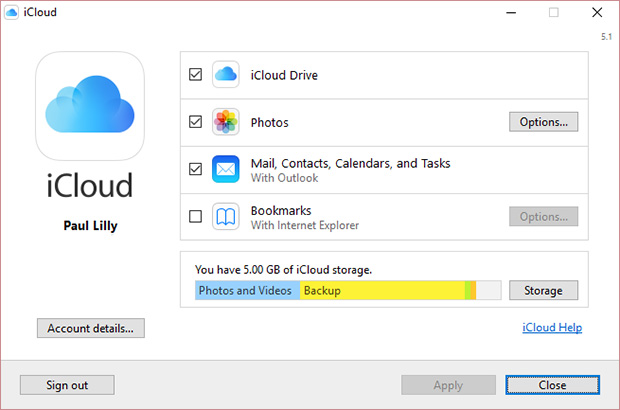Apple Taps Google Cloud Platform To Manage iCloud Infrastructure
This isn't a perfect analogy, but imagine if Burger King approached McDonald's about storing and managing its inventory of beef patties, buns, condiments, cups, napkins, and so forth. That's sort of what's happening between Apple and Google, with the former becoming a customer of the latter's cloud platform.
Apparently this was a deal Apple inked with Google last year, and since that time it's been able to reduce its reliance on Amazon Web Services to a large degree for its iCloud service. Apple hasn't completely severed its ties with Amazon, but at this point it's entrusting Google's cloud platform with iCloud much more than AWS.

Knowledge of the deal was provided to CRN from "multiple sources," all of which asked to remain anonymous. Those sources claim to have heard Google executives say that Apple's deal is worth somewhere between $400 million and $600 million, though it's not clear if that's an annual cost or for a specific amount of data.
Considering that Apple and Google are rivals in the mobile space, it might seem unusual to some that they would forge a business relationship that's in large part tied to mobile. However, Apple has shown an willingness to work with competitors when terms of the deal make sense. Also related to mobile, Apple has long tapped rival Samsung to build the custom processors for its iPhone and iPad lines, including the most recent A9 SoC.
In this case, it's estimated that Apple pays Amazon in the neighborhood of $1 billion per year for AWS. If the $400 million to $600 million figure for Google's cloud platform is correct, then it would appear that Apple's getting more bang for its buck by working with a rival.
For Google, the benefits are obvious. First and foremost, it lands a client that's spending hundreds of millions of dollars, a sum that's hard to ignore even if you're Google. And secondly, having Apple as a customer gives Google's cloud platform some serious street cred that could help it compete with AWS and Microsoft's Azure.
Apparently this was a deal Apple inked with Google last year, and since that time it's been able to reduce its reliance on Amazon Web Services to a large degree for its iCloud service. Apple hasn't completely severed its ties with Amazon, but at this point it's entrusting Google's cloud platform with iCloud much more than AWS.

Knowledge of the deal was provided to CRN from "multiple sources," all of which asked to remain anonymous. Those sources claim to have heard Google executives say that Apple's deal is worth somewhere between $400 million and $600 million, though it's not clear if that's an annual cost or for a specific amount of data.
Considering that Apple and Google are rivals in the mobile space, it might seem unusual to some that they would forge a business relationship that's in large part tied to mobile. However, Apple has shown an willingness to work with competitors when terms of the deal make sense. Also related to mobile, Apple has long tapped rival Samsung to build the custom processors for its iPhone and iPad lines, including the most recent A9 SoC.
In this case, it's estimated that Apple pays Amazon in the neighborhood of $1 billion per year for AWS. If the $400 million to $600 million figure for Google's cloud platform is correct, then it would appear that Apple's getting more bang for its buck by working with a rival.
For Google, the benefits are obvious. First and foremost, it lands a client that's spending hundreds of millions of dollars, a sum that's hard to ignore even if you're Google. And secondly, having Apple as a customer gives Google's cloud platform some serious street cred that could help it compete with AWS and Microsoft's Azure.

